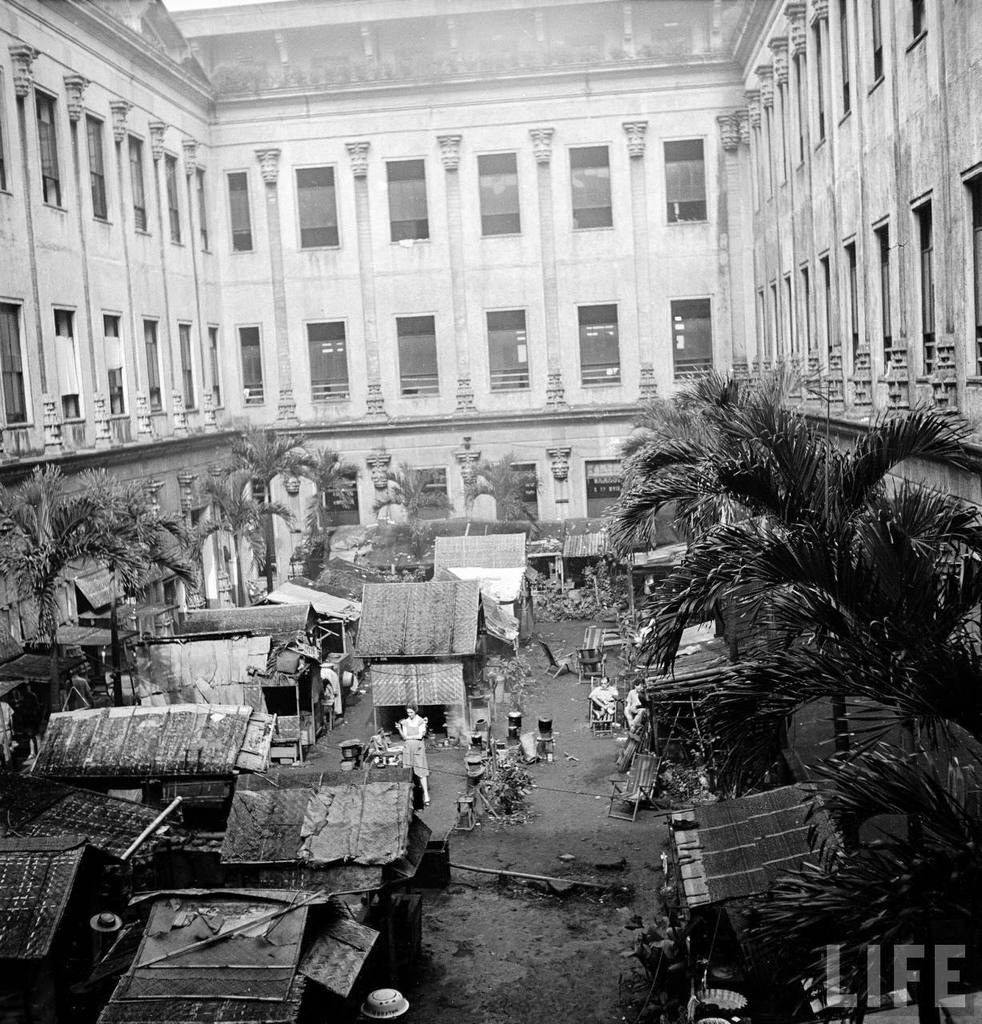Wife of one of carpenters came to wash children’s clothes today. Surprised to find she spoke a little English. She set own wage, 6 pesos monthly, about $3.00. Hours 7:00-11:00 and 1:00-5:00. When not washing or ironing she will look after the children. Applied in native sarong which mountain women wear. Said she could not begin work now because had no clothes to work for Americano. Told her her clothes made no difference to me, but if she wanted an American dress I was sure I could find one to give her when I unpacked. Before I could do that she came to work today in a brilliant rose-pink nightgown, which she said she had borrowed from a neighbor, proud
as a peacock because she was “dressed like Americanos.”
News that was brought in by cargodores, still bringing chow boxes and clothing from the Central, is that Cebu has fallen and Iloilo has heen invaded. Negros may as well be in Japanese hands as approaches to the only two harbors of the island are in territory they now control. There is not even a battery radio set in our camp, so what news comes in comes by letter from husbands still at the Central.
Another group came in yesterday, Filipino members of camp to fill the last of the incomplete houses. Mr. and Mrs. Diaz; three children (ages 11, 10, and 7); two girl servants and one houseboy; Miss Ganahan, RN., formerly with Dr. Jardelega, who will live in our hospital house and who has her sister to be her companion, and a girl servant who will cook and clean for the hospital. Nurse busy first morning treating children’s mosquito bites (mosquitoes have found us) which had been scratched and had begun to be infected. Also dressed an infected cut on Mrs. McMaster’s arm and bandaged foot of a workman who had a deep wound where tree fell on it. Though some members of camp wondered if we needed a hospital or a nurse, wisdom of having them already clear.
Mr. Thompson has not come in yet. He is a bachelor to all intents and purposes, though he’s been mated for years to a native woman who lives in Manila with their mestizo children.
A peddler was just in with two bolos for sale, holding them out in front of him and calling out in Visayan dialect. Sejio has been asking for a new bolo. I gave him one when he first came to us. Every Filipino now cares a bolo attached to his belt. Used for cutting cane, scaling fish, eating at table, and for many other uses. Peddler’s cheaper bolo was $1.50, its wooden sheath flashily decorated in strips of polished brass and handle carved into a dog’s head, but Sejio advised against getting as he said price was too high. No matter how far one penetrates into forest, peddlers follow the trail.
Our houses still have no doors nor windows and until these can be built we put some of our boxes of food across top of the front and back steps each night to keep stray dogs out. Doors and windows will be the last things added to houses as this is dry season now and would probably leave houses open for ventilation anyway. But, we have heard, rainy season is severe here. Rains for weeks without letup. I would like a floor under the house for playroom for children, if possible. Boxes of food are brought in as the men may come to them. They were stored in boxcars at the Central. I have asked cargadore many times to bring up suitcases with our clothes. I have only one change and the children barely enough to see them through one day. To one who has had no small children, toys and personal belongings such as unbreakable cups and plates, rounded spoons, blunted forks, may seem non-essential and the last thing to be brought in, but to me they seem far more necessary than the ornamental rugs I saw freshly unpacked and airing.
